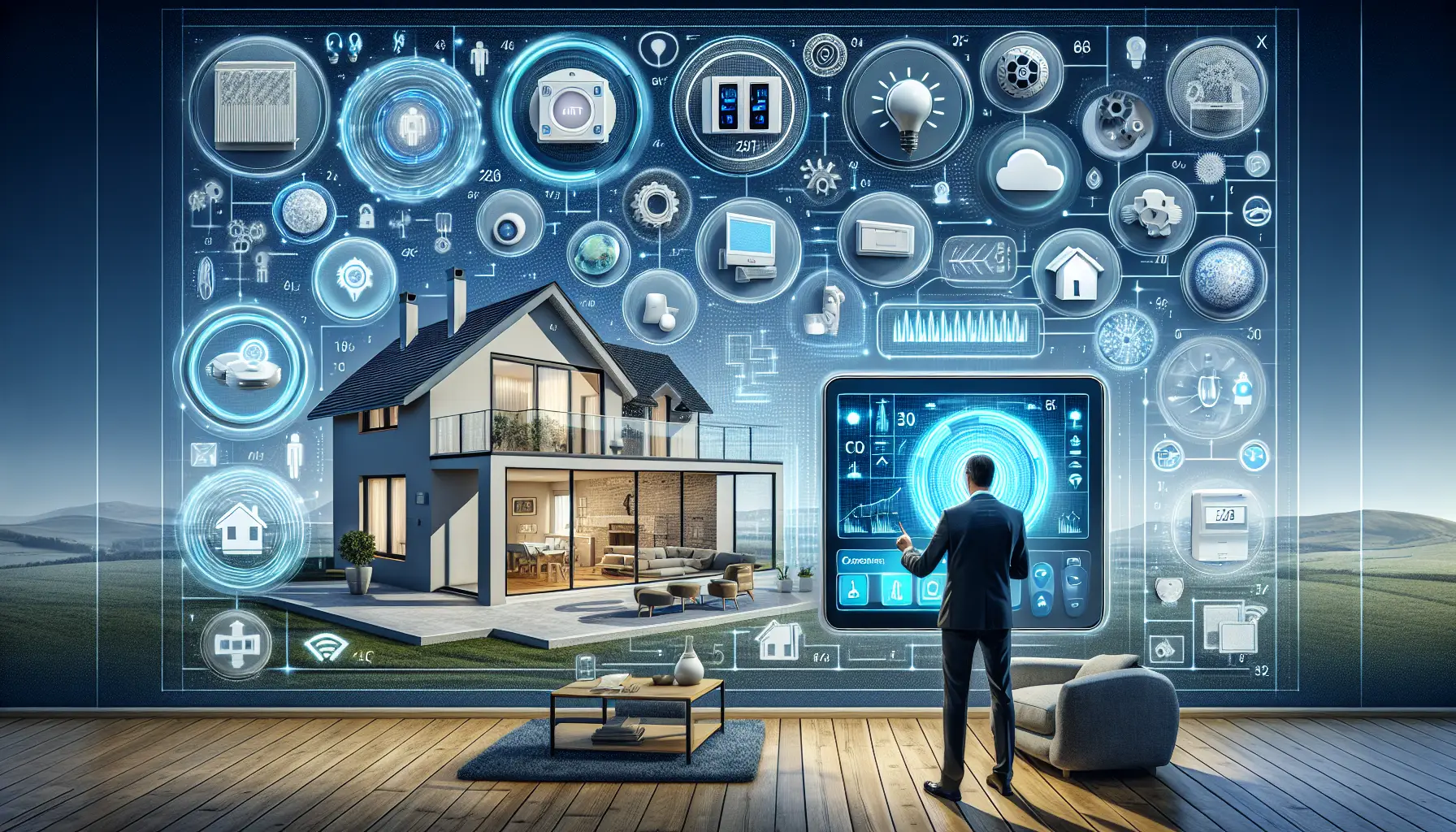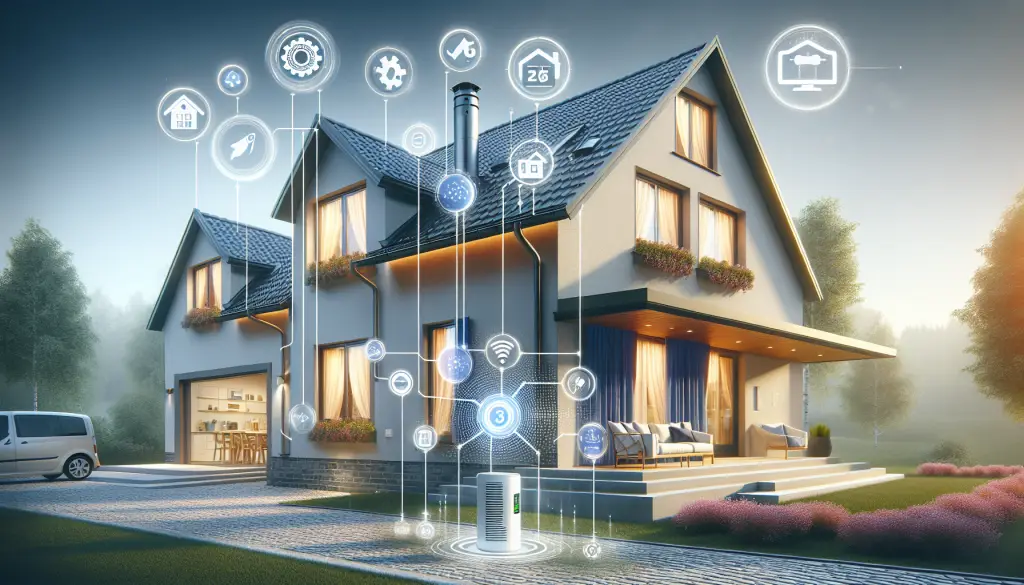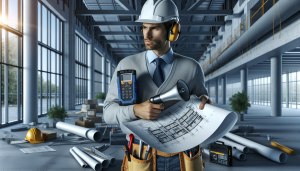The Role of Airtightness in Smart Home Technology Integration
Smart home technology has revolutionised the way we interact with our living spaces. From intelligent thermostats and automated lighting to advanced security systems, these innovations bring convenience, energy efficiency, and enhanced security to our homes. However, one crucial aspect that often gets overlooked is the role of airtightness in smart home integration. Ensuring your home is properly airtight can significantly impact the integration and performance of these technologies. At Ratio Seven, we are committed to helping you understand this pivotal aspect.
Importance of Airtightness in Smart Home Technology Integration
Airtightness is essential for the optimal performance of smart home technology. It impacts:
- Energy Efficiency: A well-sealed home prevents unwanted air leakage, reducing the load on heating and cooling systems. This enhances the performance of smart thermostats and HVAC systems, leading to energy savings.
- Indoor Air Quality: Reducing air leakage helps maintain a clean and healthy indoor environment, which is crucial for the performance of air quality monitors and other related smart devices.
- Comfort: By eliminating drafts and ensuring consistent temperatures, airtight homes provide a more comfortable living space. This performance can be further maximised by smart home technologies.
Impact on Smart Thermostat Systems
Smart thermostats are integral to smart home technology, giving users precise control over their home’s climate. Airtightness directly affects their efficiency by:
Maintaining Consistent Temperature
An airtight home stabilises the internal temperature, enabling smart thermostats to function optimally and maintain a steady climate without constant adjustments.
Reducing Energy Consumption
With reduced air leakage, heating and cooling systems can perform more efficiently, leading to significant energy savings and improved thermostat performance.
Enhancing Smart Home Ventilation Systems
Proper ventilation is essential for maintaining indoor air quality. Integrated smart home ventilation systems work best in airtight homes. Here’s how:
Optimising Airflow
In an airtight home, controlled ventilation systems can regulate airflow more effectively, ensuring a constant exchange of fresh air without compromising energy efficiency.
Improving Air Quality
Airtight homes reduce the entry of outdoor pollutants, allowing smart air purifiers and air quality sensors to maintain a healthier indoor environment.
Boosting Smart Security Systems
Smart security systems, including locks, cameras, and motion sensors, rely on the structural integrity of the home. Airtightness enhances security system performance by:
Preventing Forced Entries
Airtight homes tend to have stronger, more secure sealing around doors and windows, making it harder for intruders to break in.
Minimising False Alarms
By eliminating drafts and vibrations caused by air leakage, you reduce the probability of false alarms in smart security systems.
Maximising Smart Energy Management
Energy management is a cornerstone of smart home technology. Airtight homes contribute to more effective energy management by:
Enhancing Smart Energy Meter Accuracy
With less energy loss due to air leakage, smart energy meters can provide more precise usage data, helping homeowners make informed decisions about their energy consumption.
Increasing System Synergies
In an airtight home, various smart systems work more harmoniously. For instance, the HVAC system and smart thermostat can better communicate and respond to changing conditions.
Impact on Smart Lighting Systems
While airtightness may not directly influence smart lighting, it indirectly enhances its functionality by maintaining optimal working conditions for sensors and controls. Here’s how:
Stable Environmental Conditions
Airtight homes maintain more consistent temperatures and humidity levels, essential for the long-term reliability of smart lighting systems and their sensors.
Enhanced Automation
Stable conditions ensure that automated lighting systems work more accurately, enhancing the overall smart home experience.

FAQs
How does airtightness affect energy efficiency in smart homes?
Airtightness minimises unwanted air leakage, reducing the demand on heating and cooling systems. This leads to enhanced energy efficiency and ensures that smart thermostats and HVAC systems operate more effectively, contributing to overall energy savings.
Can airtightness improve indoor air quality with smart technology?
Yes, airtightness helps maintain better indoor air quality by preventing external pollutants from entering the home. This enables smart air quality monitors and purifiers to function more effectively, ensuring a healthier living environment.
Does airtightness offer any benefits to smart security systems?
Airtight homes strengthen the sealing around doors and windows, making it harder for intruders to break in. Additionally, reducing drafts and vibrations lowers the likelihood of false alarms in smart security systems.
What role does airtightness play in the performance of smart lighting systems?
While airtightness doesn’t directly impact smart lighting, it helps maintain stable environmental conditions, crucial for the optimal performance of smart lighting sensors and automated controls. Consistent temperatures and humidity levels ensure these systems work reliably and accurately.
How can Ratio Seven help improve airtightness in my home?
At Ratio Seven, we specialise in assessing and enhancing your home’s airtightness. Our expert services include detailed evaluations, tailored solutions, and implementation of strategies to improve your home’s airtightness, ensuring optimal performance of your smart home technologies.
Smart Home Technology Summary
In conclusion, airtightness plays a vital role in the successful integration and performance of smart home technology. From boosting energy efficiency and enhancing indoor air quality to optimising smart security systems and improving overall living comfort, the benefits of an airtight home are substantial. By focusing on airtightness, homeowners can maximise the potential of their smart technologies and achieve a more harmonious and efficient living environment. At Ratio Seven, we are dedicated to helping you achieve this goal by providing specialised services that enhance the airtightness of your home.




